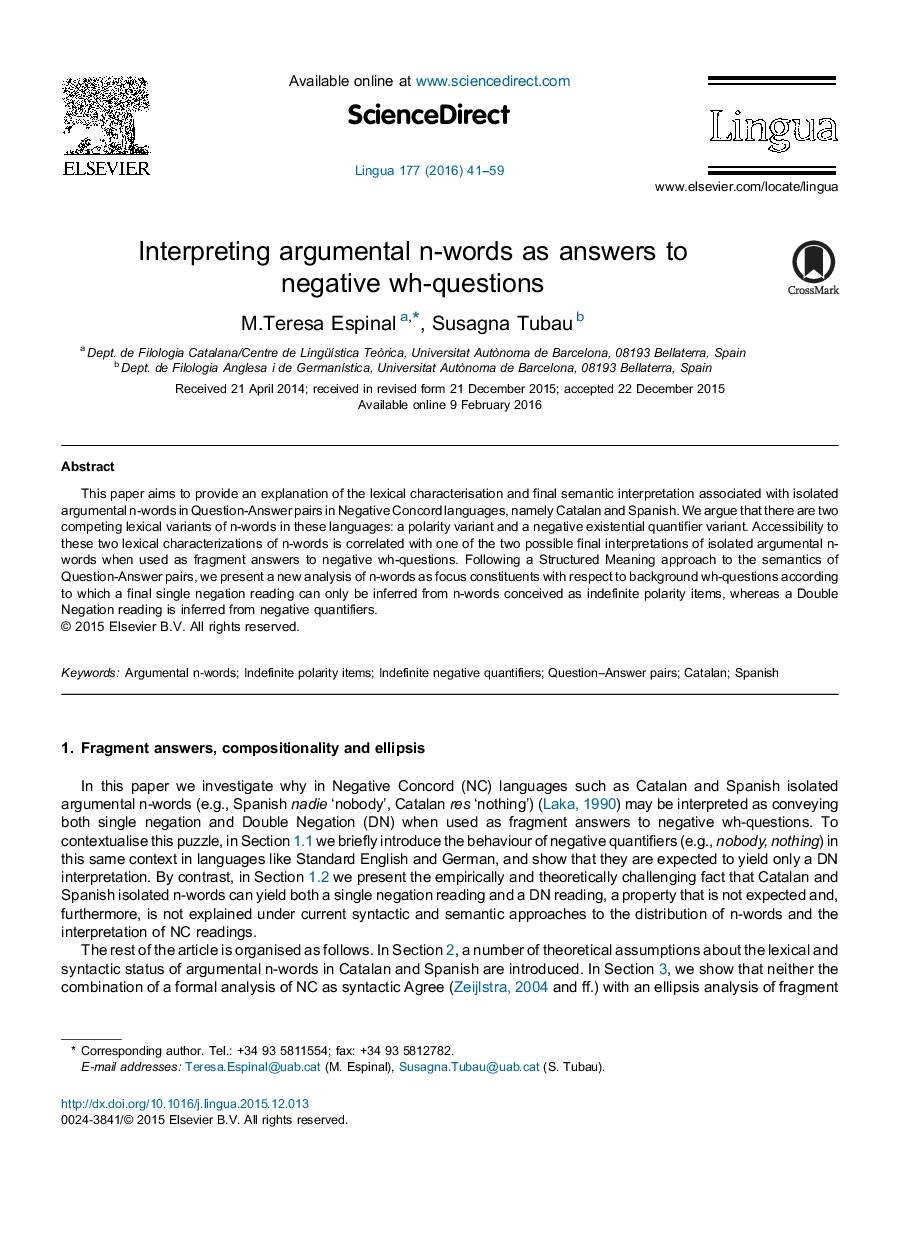| کد مقاله | کد نشریه | سال انتشار | مقاله انگلیسی | نسخه تمام متن |
|---|---|---|---|---|
| 935477 | 1475038 | 2016 | 19 صفحه PDF | دانلود رایگان |
• Catalan and Spanish isolated n-words license single negation and Double Negation.
• Isolated n-words are focus constituents with respect to background wh-questions.
• Two n-word variants condition their reading as answers to negative wh-questions.
• A Double Negation reading follows from the negative quantifier variant of n-words.
• A single negation reading follows from the polarity item variant of n-words.
This paper aims to provide an explanation of the lexical characterisation and final semantic interpretation associated with isolated argumental n-words in Question-Answer pairs in Negative Concord languages, namely Catalan and Spanish. We argue that there are two competing lexical variants of n-words in these languages: a polarity variant and a negative existential quantifier variant. Accessibility to these two lexical characterizations of n-words is correlated with one of the two possible final interpretations of isolated argumental n-words when used as fragment answers to negative wh-questions. Following a Structured Meaning approach to the semantics of Question-Answer pairs, we present a new analysis of n-words as focus constituents with respect to background wh-questions according to which a final single negation reading can only be inferred from n-words conceived as indefinite polarity items, whereas a Double Negation reading is inferred from negative quantifiers.
Journal: Lingua - Volume 177, July 2016, Pages 41–59
